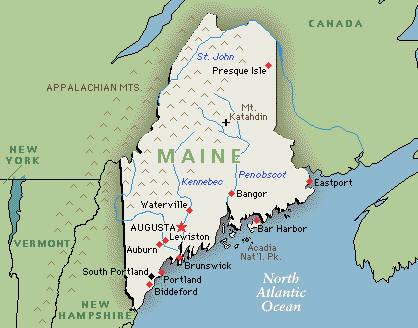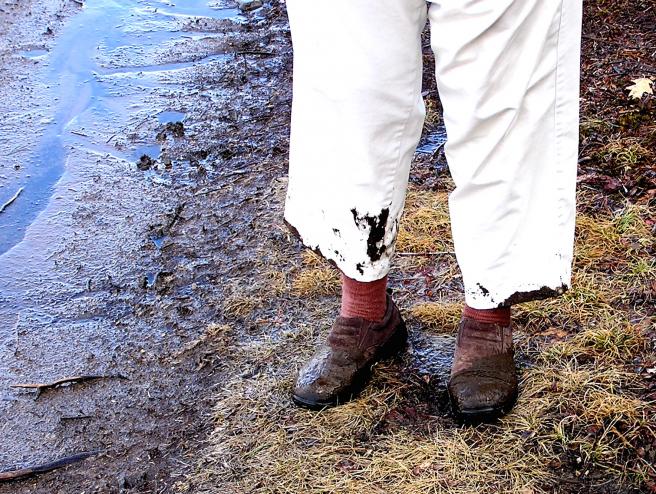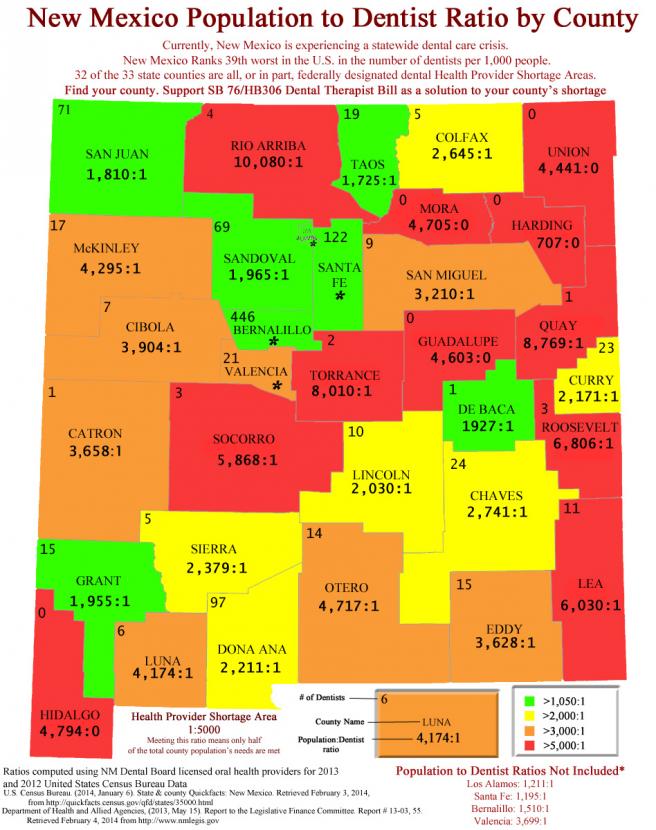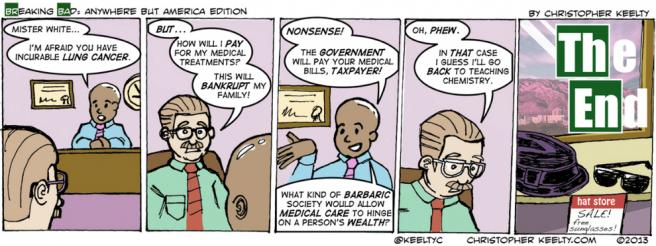Health care for artists - find out more
Guest post by Zack Kear, Albuquerque resident, musician & teacher. (Originally published as an oped in the Albuquerque Journal, 2/13/2014.)
I’m a musician, which means I work several jobs so that I can do what I love. But it’s difficult to maintain affordable health insurance when most of your work is part-time or you’re in between jobs, and I know a lot of my friends are in the same boat.
There’s been a lot of talk about the new health care law, but I still have a lot of unanswered questions, and I know my fellow artists do, too. I heard that Health Action New Mexico is hosting a “Creative Coverage Cabaret” at ArtBar this Sunday from 4-7 p.m. for artists and art lovers who need health insurance.
Health Action New Mexico will have health care guides at the event to answer questions, no matter how small. If you’re like me, you get overwhelmed at the very mention of premiums, deductibles and co-pays. So having a friendly expert to explain my options – especially about what financial assistance I can get to help pay for insurance – sounds great.
While you talk to the health care guides, there will be live performances from a long list of Albuquerque-based artists from comedians to musicians to dancers. Come support our local talent and get health insurance – what better way to get covered?
I’m going because last year my University of New Mexico Cares plan was denied renewal. To make matters worse, I developed a jaw alignment problem that insurance wouldn’t cover.
As a singer and a flautist, this was potentially devastating. I ended up paying out of pocket for my preventative treatment only to find myself unable to afford the cost of monthly insurance.
Now that I’m without, I appreciate the value of health insurance more than I did before. If I needed other medical care tomorrow, I would have no way to afford it. So now that there are all these new plans under the new law, I’m hoping that the guides at the Creative Coverage Cabaret can help me find an affordable plan.
What I’ve learned so far about the Affordable Care Act is that almost three-quarters of uninsured New Mexicans are eligible for financial assistance or Centennial Care (our new Medicaid), and Centennial Care has expanded to include adults who have never qualified for Medicaid before. So chances are you qualify for financial help. And if you do, you could pay seriously low-cost or no-cost monthly premiums – and you wouldn’t have to worry about how you would pay in an emergency.
The other great thing is that the new rules give you better, more comprehensive care than was available on a lot of plans before the Affordable Care Act.
Now health insurance is required to cover basic benefits like prescription drugs, hospitalization or doctor’s visits. And on top of that, a lot of the things that could prevent sickness – like flu shots, checkups and cancer screenings – are free.
So come for the music, comedy and performance and potentially leave with health insurance coverage. Even if you have coverage already, you should come learn about the changes and how they affect you because there could be cheaper, better plans out there. At the very least, it’s a night to celebrate both our art and our health.
If you can’t come to the event, call Health Action New Mexico at 505-867-1095 because they can explain the new options a lot better than I can. Just do it before March 31, otherwise you may have to pay the fine and wait until next year to enroll.
Affordable, accessible health care means that we can do what we love without having to worry about where our health insurance is coming from or how we are going to afford it. Come to ArtBar by Catalyst Club at 119 Gold SW to see what that means to us.
Health ActionMaine is gaining some ground for dental health
Maine takes another big step for Dental Therapists
A major victory today in Maine – their Dental Therapy bill got initial approval from the state Senate. Earlier this week it passed the state House on Tuesday. By conrast, last year the bill died in the Senate, losing by 7 votes.
While they still have to have another vote next week on enactment, they got 19 votes. This means that they can lose one vote and still be safe to win 18-17. They will need to hold those votes in the face of great pressure from the dental associations’ lobbyists. We cannot assume this is a done deal. However, it is great news and a huge acheivement for Maine's people.
Let's follow Maine's lead to make Dental Therapists a reality for New Mexico.

EXERPT FROM THE ARTICLE:
Maine Senate advances bill to create ‘dental therapists’: The proposal would allow dental hygienists to perform some procedures currently performed by dentists.
AUGUSTA -- The Maine Senate on Wednesday continued to a push a bill that would allow some dental hygienists to perform some duties currently performed by licensed dentists.
The proposal, L.D. 1230, sponsored by House Speaker Mark Eves, D-North Berwick, would create a new dental health position in the state, a “mid-level dental therapist.” Proponents say the bill is an attempt to increase access to dental care, especially in rural areas. However, groups representing dentists have fiercely opposed the measure, saying the state’s current shortage of dentists will be filled.
...
Sen. John Patrick, D-Rumford, said the bill would increase dental care for poor and rural Mainers. He noted that only 12 percent of the state’s dentists currently accept MaineCare patients. MaineCare is the state’s version of Medicaid, the publicly funded health insurance program for the poor, elderly and disabled.
...
Sen. Roger Katz, R-Augusta, said he was originally ambivalent about the proposal, but not any longer. Katz said that proposal doesn’t force dentists to hire a dental therapists, but it could increase profits while expanding coverage if they do. He said that if two-thirds of the children in the state don’t have a dentists, then the current marketplace is broken.
“The status quo isn’t working,” he said. “This is the right thing for our state.”
The full article can be found on our Dental News feed. You can subscribe to the news feed to get real-time updates! Just click the small orange button in the top right corner.
Story from the
Healthy Holiday Homecomings

Photo from Flickr
Tired of re-gifting ugly sweaters and decades-old chestnuts for the holidays? This year, try stuffing those stockings with something a little different: health coverage for your friends and family! Enroll America’s “Get Covered America,” campaign is offering Healthy Homecoming E-Cards this holiday season on their website, so you can send loving reminders to your loved ones.
With many charitable organizations now accepting online donations, there has been a paradigm shift in how we view gift-giving in the United States. Instead of buying expensive objects, many Americans are choosing to make donations on behalf of their loved ones. Rather than donate money this yuletide, with Enroll America’s Get Covered E-Cards you could help an uninsured loved one get low-cost or no-cost health insurance through the new Medicaid Expansion or the New Mexico Health Exchange. Sometimes all it takes is to let them know that you care.
And with 2014 coverage beginning in just 15 days, tis the season for healthcare! Enroll America’s three-step Healthy Homecoming process helps you start the conversation and get your nearest & dearest on the path to coverage this holiday season.
- Stephanie Grilo, Health Action NM Story Banker and Young Adult Outreach Coordinator
Health Action
If History Were Taught Through Stories, It Would Never be Forgotten

You’re a bit nervous to approach the woman in line. She’s wearing a worn woolen sweater that has the charm of that twice removed cousin-in-law of yours you only see at weddings and the occasional reunion. The woman seems nice enough, however all that research you did on, “how to make someone feel comfortable,” and “what not to do when conducting an interview” slinks away to the confides of your mind. You flip through those analogs for the right greeting you learned back in etiquette school when you were five. You decide on, “Hello.” It works. You follow up with, “How are you today?” She responds how any other individual standing outside in the mud of a free dental clinic would, “Tired.” You relate.
You then engage in a conversation about how she came to find out about New Mexico’s Mission of Mercy, a free dental clinic that only occurs every year and a half. What comes from this conversation is a remarkable story about an immigrant family torn from each other and how a simple dentist visit is not as easy as you would think. In fact, impossible for this woman in her beautifully worn woolen sweater. Her name was Lucia. Her mother was diagnosed with skin cancer a few years ago, but she could not get onto Medicaid or Medicare in the United States because of her immigrant status. Their family was eventually torn from one another. All over the access to healthcare.
As a story collector, you get to experience a world of characters. You begin to notice the subtle nuances of your subjects, how their smile reflects a certain joy, their tears sting your soul, and how the overall breadth of their personal stories move you and others. Philip Pullman, a children’s novelist, once said, “After nourishment, shelter and companionship, stories are the thing we need most in the world.” It is because of stories we find solidarity rather than anonymity. It is because of stories we relate rather than hate. It is because of stories we can transmute barriers and find solutions. Stories define you, they define me, and, “have to be told or they die, and when they die, we can't remember who we are or why we're here” (Sue Monk Kidd, The Secret Life of Bees). Click here to read Lucia's story.
- Stephanie Grilo, Story Banker and Young Adult Outreach Coordinator
Health Action
Nov. 1st Convening drew diverse health leaders
On November 1st we held our first-ever regional convening on health care Outreach & Enrollment. It was a great success! With over 80 health leaders from a diverse set of backgrounds, we had a wide range of representation from various players in the enrollment field.
One of the most exciting outcomes from the convening was participants' interest in continuing the dialogue. There are so many groups doing great work surrounding outreach and enrollment in our state, it is time that we join together to work towards the same goal: enrolling New Mexicans in health coverage.
Health Action NM two more convenings during open enrollment - one for southern NM in December 2013, and one for northern NM in January 2014. Stay tuned for details!
Breaking Bad meets the Affordable Care Act
Once Is Chance, Twice is Coincidence, Third Time Is a Trend
This post was originally posted on the Health Policy Hub Blog.
- - -
Rowena Ventura, director of We Are the Uninsured in Cleveland, knows firsthand the horrific effects that the lack of affordable dental care can have. She tells of how a woman she knew died on the streets after losing her job because she was unable to see a dentist and of how her own son, a roofer, wound up pulling his own tooth and losing three more after he got an infection.
Every day, millions of Americans, like those in Rowena’s life, suffer and struggle because they can’t get dental care. In 2010, 181 million children and adults went without any dental care at all.
With glaring gaps in the delivery system preventing people from getting affordable care in their community, policymakers, researchers and the media are increasingly focusing on the use of dental therapists – an evidence-based solution that can address this crisis, one that expands the ability of the dental team to treat underserved populations. In the last few weeks, we have seen a trend of independent research and support from policymakers and dentists emerge.
First, Senators Max Baucus and Charles Grassley issued a Joint Staff Report in which they note that access to dental services is a concern and empowering mid-level providers is a common-sense solution.
Dr. Richard Katz, a California dentist and business owner, raised mid-level dental providers again, in an op-ed published Aug. 6 in the Huffington Post, where he asserted that mid-levels known as dental therapists “can improve the lack of access to many Americans, as one in seven live in an area where there is very little availability. These mid-level practitioners would be able to serve more people at a lower cost.”
And, on Aug. 9, the Washington Post’s Wonkblog carried a piece by Harold Pollack that shed light on the severe problems in our dental delivery and financing system. Some 85 million Americans lack dental insurance; Pollack notes that while raising Medicaid rates for dental services is important, money alone won’t solve this problem. One important way to bring dental care to Medicaid patients, he says, is to “expand services provided by mid-level providers known as dental therapists.” Which, as a recent report released by Community Catalyst demonstrates, is exactly what dental therapists in Minnesota and Alaska are doing: increasing the capacity of safety-net providers to treat underserved populations in their communities.
Taken together, these articles and studies bring to mind the old saying, “Once is chance, twice is coincidence, third time is a trend.” Dental therapists are catching on.
Someday, the practice of dental therapists in the United States will be the norm – in much the same way that the practice of medical mid-levels such as nurse and physician practitioners is the norm today. Demographic realities and market changes will continue drive this trend. The tipping point for dental therapists will happen sooner rather than later because from a cost and access perspective, we simply can’t afford to wait.
Stay tuned for part II of this post, which will detail how dental costs are driving this issue.
- David Jordan, Dental Access Project Director, Community Catalyst
Word of MouthLemons to Lemonade: NM declared dental provider shortage is a job creation opportunity
I see facts and statistics all the time that put New Mexico at the bottom of the national list in health, education and other socioeconomic indicators. There is plenty of work to be done in our state on high school dropout rates, teenage pregnancy, children in poverty, and other areas of socioeconomic wellbeing. Oral health is no different.
The number of dental providers in New Mexico is not enough to meet current demand for dental services let alone the additional demand brought about through newly insured New Mexicans under Medicaid Expansion and the Affordable Care Act (ACA), according to a May 2013 report to the state Legislative Finance Committee.
This is not news for many of us working to bring access to dental services to all New Mexicans. And it’s certainly not news for over 1.31 million New Mexicans, 63% of our population, who according to the report, don’t have access to a dental provider because they live in dental provider shortage areas or underserved areas of our state.
New Mexico has a choice:
- We can either be depressed by the shortage of dental providers and stand frozen in a state of worsening status quo, OR
- We can embrace an innovative, evidence-based solution that creates jobs in NM for NM.
The Solution: Add mid-level dental providers called “Dental Therapists” to NM’s dental team.
In fact, one of the key findings of the report was the NM Legislature should “revisit the concept of dental therapists as an additional way to provide care to underserved areas under the supervision of dentists…"
Dental therapists come from underserved communities and return to serve their home communities. Dental therapists mean:
- Careers and livable wage jobs for all NM communities.
- Serving the oral health needs of their home community.
- Keeping money in the community rather community members taking their dollars to other towns and cities.
- Increased worker and student productivity, fewer school and work days missed because the dental therapist is in town.
- Job opportunities at NM educational institutions with dental therapy education programs.
This makes sense for our communities. People want dental care; and they want jobs for the next generation. Schools are on board, also: at least four NM education institutions are interested in having dental therapy education programs. (Southwestern Indian Polytechnic Institute, Northern NM College, Eastern NM University – Roswell, and Dona Ana Community College). They see dental therapists as a viable solution both to serve their community’s oral health needs and to create new work opportunities. We can turn what is currently a sour situation into better care and increased opportunities for New Mexico communities.
- Pamela
Word of MouthNotes from the field: CMS Call discussing NM Behavioral Health
Some highlights from the Aug. 28, 2013 CMS listening call to hear from behavioral health consumers on the disruption of service due to HSD process of Medicaid funding freeze and bringing in AZ takeover companies.
- 27 callers were heard.
- Callers were told not to discuss the “fraud” issue.
- Many consumers noted that the timing and method of the call was not accessible to most consumers of behavioral health services (working parents, non-English speakers, children, homeless persons, persons in jail or in the juvenile justice system. Others complained about the lack of outreach to let people know about the call other than email or facebook postings.
- Callers noted that a quarter of the time for consumers to give their input was taken by HSD defending their actions or countering with their actions to resolve issues.
- Stories from across the state painted some of the vivid picture of the disruption of services that has taken place, including not being able to get appointments and medications. Many parents reporting disruptions of service for their children. Lack of contracts by new AZ provider agencies with psychologists who can prescribe medications.
- Many consumers noted that consumers and their communities were “scared”, “frightened and threatened" by the type of actions taken by HSD. Some described the HSD action as a dangerous future precedent.
- Consumers complained they received no notification or explanation of changes either from HSD or the new providers. Had to learn about it word of mouth or in the media.
- One therapist whose takeover situation is down from 12 to 3 therapists for several thousand clients says they now have to do new intake forms which take up to 2 hours. This results in long waits until this process is completed.
- Various callers discussed behavioral health professionals either leaving rural areas or the state because of the HSD takeover process. Two referred to the “ripple effect” across NM and its communities.
- Callers from Native American communities noted that their communities would be hardest hit both by the disruption of service and the decrease in providers in NM.
- Various callers called for HSD to “change direction,” restore previous provider agencies, etc.
- Several callers outlined impact on frontier communities where services are already precarious.
- Several callers discussed the lack of contracts with BMS workers so children who needed these services couldn’t be in school.
- An attorney noted that assessments for infants in state care were not happening in her affected area so parents couldn’t start the process to get their children back - with a disastrous effect on family.
- Callers talked about disruption leading to potential hospitalization and reliance on ER services that didn’t resolve issue. One caller talked of dual diagnosis person who is in a nursing home because of lack of services – this is not an appropriate place for care.
- A psychologist from one of the pueblos discussed cultural competency and that NM was very different from AZ in cultures and poverty despite the AZ takeover entities’ claims to the contrary. Gave clear examples from tribal and Hispanic traditional societies where it takes extended time of years in these communities to gain real insight into the cultural issues. Said that bringing in AZ agencies was in fact saying culture doesn’t matter.
- One caller called on HSD to put boots on the ground in the affected communities and hold community forums. When HSD said they would do so with 6 months, the caller deemed that was not acceptable.
- One caller: “Government has failed consumers and I don’t know how you can sleep at night.”
If people have crisis situations, they should call: 855-662-7474
If people have care coordination issues, they should call 866-660-7185
Also, active Facebook groups for this issue can be found here:
1) New Mexico Rising Up - https://www.facebook.com/nmrising
2) Save Behavioral Health https://www.facebook.com/SaveBehavioralHealthNM
- Notes by Barbara
Health Action


